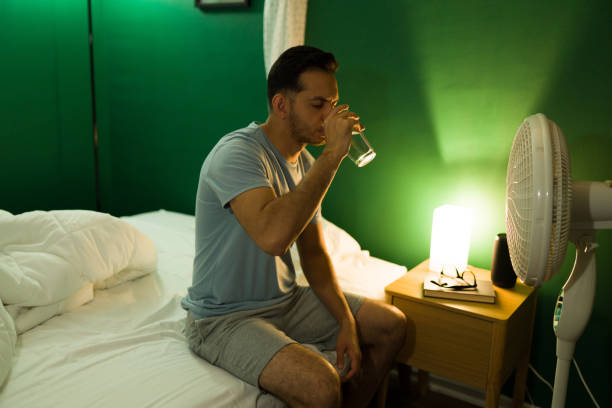They say that the quality of your sleep depends on the depth of your first 90 minutes of sleep or of your first non-REM sleep. To summarize expert advice, two things seem particularly important for deep non-REM sleep: a sufficient drop in core body temperature(CBT) at bedtime, and parasympathetic dominance.
Lowering Deep Body Temperature
During the daytime activity, the internal organs, fat, and muscles produce heat, and the body’s internal temperature, CBT, is up to about 2°C higher than the skin temperature. At night, blood flows from the heart, brain, and other parts of the body to the peripheral blood vessels of the limbs. It makes the skin temperature rise, and the heat is released from the body, and then the CBT falls. The body goes into energy-saving mode by lowering the CBT, which allows the brain and organs to rest.
The difference between CBT and the skin temperature narrows in this way, and the overall body temperature averages out, resulting in deep non-REM sleep. The human body can maintain constant body temperature, so when the body temperature rises, heat dissipation goes up to a greater extent. The reason why bathing one to two hours before bedtime is recommended is that if you temporarily raise your CBT by bathing, it will then drop significantly, which brings the perfect time to fall asleep.
However, if the blood doesn’t flow to the hands and feet due to a cold constitution, or low heat dissipation, CBT won’t drop sufficiently. Also, if your CBT is low by your nature, you will not be able to change your body temperature enough, which makes it difficult for the body to enter energy-saving mode and get a good sleep.
Parasympathetic Nervous System Dominance
The disorder of the autonomic nervous system is another major factor that prevents the body from entering energy-saving mode. The autonomic nervous system, which you cannot control, has a sympathetic nervous system in tension mode, which is dominant during the day, and a parasympathetic nervous system in relaxation mode, which is dominant at night. These two balance with the fact that when one is active, the other is not. For good sleep, the parasympathetic nervous system, which is the “nerve of rest,” needs to become dominant instead of the sympathetic nervous system, which is the “nerve of battle.” However, in today’s society, where there is a lot of stimulation and stress, the sympathetic nervous system remains active even at night, making it difficult for the parasympathetic nervous system to be turned on.
The best way to turn on the parasympathetic nervous system in these situations is to improve blood circulation. When the parasympathetic nervous system becomes dominant, blood circulation improves, and the reverse is also true. Besides, better blood circulation can also help improve the cold constitution that interferes with sleep. Increased blood circulation, a fundamental key to good health, is also essential to good sleep.




